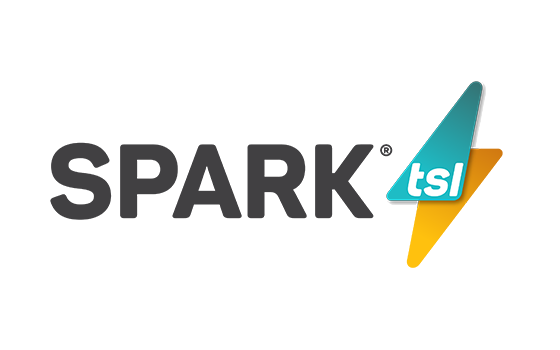 Stepping Hill Hospital, part of Stockport NHS Foundation Trust, has replaced its bedside units with state-of-the art devices running a full range of information, engagement, communications and productivity apps, to demonstrate the potential of digital technology in the NHS.
Stepping Hill Hospital, part of Stockport NHS Foundation Trust, has replaced its bedside units with state-of-the art devices running a full range of information, engagement, communications and productivity apps, to demonstrate the potential of digital technology in the NHS.
Stepping Hill Hospital in Stockport has gone live with the first lighthouse deployment of SPARK TSL's Fusion platform in the UK.
The hospital, which looks after a population of 350,000 people in Greater Manchester, has replaced its outdated Hospedia bedside units with modern SPARK Fusion Bedside Units running the state-of-the-art infotainment platform.
This will give patients access to a greater range of entertainment, information and communications services, while enabling staff to explore the potential of SPARK Fusion's leading engagement and productivity apps.
Peter Hughes, chief technology officer at Stockport NHS Foundation Trust said: "The Hospedia entertainment solution has remained largely unchanged for the last 10 years and is very limited in what it provides to patients.
"Following consultation with SPARK TSL, it was a no-brainer for us to take advantage of the opportunity to replace all our Hospedia units with the latest, tablet-based devices, of SPARK Fusion. This has not only provided a wider array of entertainment options for patients, but is a medium through which we can deliver targeted information and leverage other digital capabilities, including translation services and meal ordering.
"With an eye on the near-term future and our electronic patient record programme, the ability to leverage devices at the bedside will absolutely improve the availability of the patient record - and potentially dispense with the need for laptops/PCs on trolleys and a wide array of tablets for staff to access various digital systems."
SPARK TSL is a leading provider of WiFi to retail outlets, transport and conference venues, but it has developed a specialisation in healthcare since it started working with a large London trust in 2005.
In 2020, it became part of the Volaris Group, which acquired legacy bedside unit provider Hospedia the following year. And in 2024, it acquired Sentean Group, which developed the Fusion platform that is already proven in 40% of hospitals in the Netherlands.
SPARK Fusion keeps patients entertained by giving them access to a wide range of television, radio, and magazine content, phone calls and chat. It also supports a wide range of apps, thanks to its adoption of international integration and messaging standards.
The functionality already available includes translation, so patients can communicate effectively with their clinicians, modern nurse call, so patients can indicate their needs and the right person can acknowledge and meet them, and a food ordering app, so patients can choose meals that meet their dietary requirements.
Trusts and health boards can also use the platform to enable patients to complete the Friends and Family Test and other feedback forms, and to make sure patients have proactive information about their condition to promote recovery and reduce readmission rates.
In the Netherlands, patients already use the platform to control aspects of their environment, such as room temperature and lighting, and staff can set door signs electronically: features that align with NHS England’s vision for the ‘digital hospital’ of the future.
SPARK TSL chief executive Jane Stephenson said: "We are passionate about improving patient experience by ensuring patients have access to the information and services they require, and we know what a difference it can make to provide support to the clinical teams delivering those services.
"That's why we brought SPARK Fusion to the UK and why we’re so pleased to be live at Stepping Hill. The go-live for our first lighthouse project is a tremendous achievement and we are confident that it will be instrumental in helping us to achieve those aims, which I know we share with its dedicated team."
SPARK Fusion integrates with EPRs using HL7 messaging, so apps can draw on demographic and clinical information in the EPR. It can be used by ambitious trusts to reach Level 7 on the HIMSS EMRAM maturity model: an internationally recognised marker of digital maturity.
At Stepping Hill, the platform will be installed on 500 new devices and bedside units, covering all of the traditional ward spaces in the 740-bed hospital. A second lighthouse trust, to further demonstrate the potential of SPARK’s digital technology, will be announced shortly.
About SPARK TSL
SPARK TSL is transforming the future of healthcare through innovative wi-fi and media solutions, cementing its position as the leading provider to the NHS. With a mission to revolutionise the way hospitals connect, SPARK TSL is committed to delivering technology that empowers both staff and patients.The groundbreaking SPARK Fusion product is at the heart of this transformation. By introducing state-of-the-art touchscreen technology and a dynamic digital platform, SPARK Fusion enables hospitals to seamlessly integrate clinician- and patient-friendly apps, improving efficiency and patient care. This advancement not only enhances the patient experience with ‘free at the point of use’ entertainment and information, but also equips staff with powerful tools to streamline their work and improve outcomes.
Following the acquisition of Hospedia by its parent company, Volaris Group, in 2021, SPARK TSL has replaced outdated systems with cutting-edge solutions designed to meet the evolving needs of the NHS. SPARK TSL's vision is clear: to foster innovation in healthcare, improve patient well-being, and support NHS staff by providing the digital infrastructure that drives the hospitals of tomorrow.